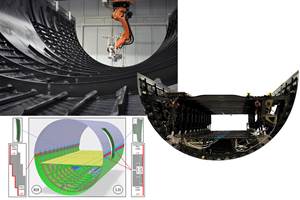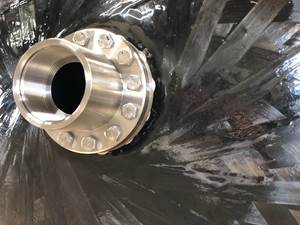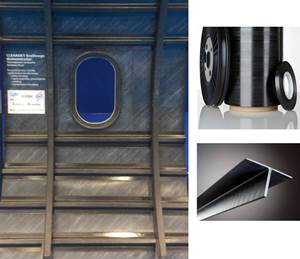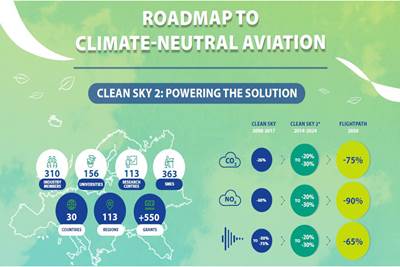Additional funding secures ZeroAvia hydrogen-electric engine development
Additional raise of $24.3 million in funding to accelerate developments for 50-plus seat aircraft and support commercial airline initiatives to adopt hydrogen.
Share
Read Next

Propelling its mission towards delivering airlines zero-carbon, hydrogen-fueled flight, ZeroAvia (Hollister, Calif., U.S.) has announced that it is launching the development program for a two-megawatt (MW) hydrogen-electric powertrain for full-size regional aircraft. The program kick-off is supported by a new raise of $24.3 million, led by Horizons Ventures, joined by a new investor British Airways. Existing investors Breakthrough Energy Ventures, Ecosystem Integrity Fund, Summa Equity, Shell Ventures, and SYSTEMIQ also participated in the financing. This new round accelerates the larger hydrogen-electric engine development for the 50-plus seat aircraft and supports additional commercial airlines’ initiatives to adopt hydrogen in aviation (CW covers the growth of hydrogen storage and transport in its recent hydrogen collection). This announcement brings the company's total private investment to more than $53 million and the total funding raised since inception to nearly $74 million.
This latest funding follows the announcement in December that the UK Government — through the Department for Business Energy & Industrial Strategy (BEIS), the Aerospace Technology Institute (ATI) and Innovate UK — had awarded a £12.3 million grant ($16.3 million) to deliver a breakthrough 19-seat hydrogen-electric powered aircraft that is market-ready by 2023. The company announced its $21.4 million Series A funding round at the same time, accelerating its 600-kilowatt development program scheduled for commercial entry in 2024.
“This new funding, in conjunction with our other recent milestones, will significantly accelerate our path to zero-emission solutions for larger regional aircraft at a commercial scale,” says Val Miftakhov, CEO and founder of ZeroAvia. “With many airlines lining up and ready to make the shift to zero-emissions, we expect to see wide-scale adoption of this technology. We are extremely grateful for our investors who are helping to speed up our progress and ultimately the aviation industry's adoption of zero-emission flight.”
ZeroAvia expects to achieve commercialization for its hydrogen-electric powertrain as early as 2024. Its hydrogen aviation solutions will address various markets by initially targeting a 500-mile range in 10-20 seat aircraft used for commercial passenger transport, package delivery, agriculture and beyond. Accelerated by this new capital infusion, ZeroAvia will also target entering the 50-plus seat commercial aircraft segment by 2026.
“Flying on jet fuel comes with an environmental cost, and finding an alternative for the aviation industry is vital. We believe ZeroAvia offers a real and practical solution for the aviation market to move towards cleaner options,” adds Patrick Poon from Horizons Ventures.
The round will also further derisk the company vision of powering a 100-seat single-aisle aircraft by 2030. ZeroAvia's achievements to date are said to be the first steps in realizing the near-term transition from fossil fuels to zero-emission hydrogen as the primary source for commercial aviation.
As the company continues to scale its global operations, ZeroAvia also brings three new members to the senior team:
Christine Ourmières-Widener joins ZeroAvia's Board of Directors and brings executive experience cultivated from her time spent in top leadership at airline and travel corporations, including VP and GM USA for Air France-KLM (Tremblay-en-France, France), CEO and board member of CityJet (Swords, Ireland), chief global sales officer of American Express Global Business Travel and CEO of FlyBe (Exeter, U.K.). She previously served on the Board of Governors for the International Air Transport Association (IATA, Montreal, Canada) and was a non-executive director for the airline retailer Datalex (Dublin, Ireland).
Mike Friend, a retired Boeing (Chicago, Ill., U.S.) senior technology director and consultant for Mitsubishi Aircraft (Moses Lake, Wash., U.S. and Aichi, Japan), joins the Technical Advisory Board to lend his extensive aerospace technology knowledge to the powertrain development programs. In the early 2000s, he led a historic Boeing Phantom Works project in Spain, resulting in the world's first manned hydrogen-electric airplane flight. Following that, he was a chief engineer in the New Airplane Product Development team at Boeing Commercial Aircraft, playing critical roles in developing multiple vehicle concepts, including Boeing 787 Dreamliner.
Mark Blair, a retired FedEx VP of Air Operations and a former director of Fleet and Government Sales for Cessna Aircraft Co. (Wichita, Kan., U.S.) joins ZeroAvia Advisory Board to lend his extensive knowledge in package delivery applications of various sizes of aircraft. Mark is also engaged with a number of cargo and passenger operators in advisory capacities and will bring this diverse operator perspective to ZeroAvia.
Related Content
Manufacturing the MFFD thermoplastic composite fuselage
Demonstrator’s upper, lower shells and assembly prove materials and new processes for lighter, cheaper and more sustainable high-rate future aircraft.
Read MoreInfinite Composites: Type V tanks for space, hydrogen, automotive and more
After a decade of proving its linerless, weight-saving composite tanks with NASA and more than 30 aerospace companies, this CryoSphere pioneer is scaling for growth in commercial space and sustainable transportation on Earth.
Read MorePEEK vs. PEKK vs. PAEK and continuous compression molding
Suppliers of thermoplastics and carbon fiber chime in regarding PEEK vs. PEKK, and now PAEK, as well as in-situ consolidation — the supply chain for thermoplastic tape composites continues to evolve.
Read MoreWelding is not bonding
Discussion of the issues in our understanding of thermoplastic composite welded structures and certification of the latest materials and welding technologies for future airframes.
Read MoreRead Next
Clean Sky 2 study emphasizes need for hydrogen-powered aviation development
Independent study found hydrogen as primary energy source for aircraft propulsion, outlines roadmap and required policy actions for hydrogen aviation, fuel cell technology development.
Read MorePlant tour: Daher Shap’in TechCenter and composites production plant, Saint-Aignan-de-Grandlieu, France
Co-located R&D and production advance OOA thermosets, thermoplastics, welding, recycling and digital technologies for faster processing and certification of lighter, more sustainable composites.
Read MoreAll-recycled, needle-punched nonwoven CFRP slashes carbon footprint of Formula 2 seat
Dallara and Tenowo collaborate to produce a race-ready Formula 2 seat using recycled carbon fiber, reducing CO2 emissions by 97.5% compared to virgin materials.
Read More


























